Relationships & Community Harmony
Wisdom for Living Together in Peace
From sibling rivalries to neighborhood feuds, every culture has passed down ways to build trust, repair conflict, and nurture love. Grandmothers taught not just how to get along—but how to stay connected through kindness, listening, and shared responsibility.
Why It Matters
Healthy relationships and peaceful communities are the foundation of personal and social well-being.
How to Use
Discover tips for resolving conflict without blame or shame
Learn old sayings that promote patience, empathy, and understanding
Apply traditional advice to modern relationships—at home, work, or in the community
Grandma Tip
“Don’t go to bed angry. Even a quiet smile can heal what words cannot.”
🇬🇭 Tradition from Ghana
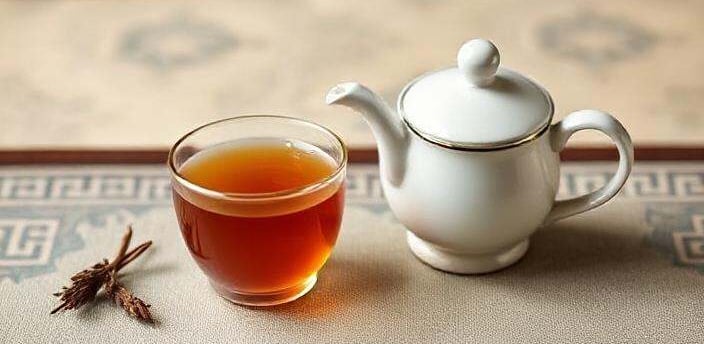

🇨🇳 China
Tea Before Talk
Respect Served Warm
In Chinese households, offering tea before serious discussions signals peace, respect, and readiness to listen.
Why It Works:
Slows tension, creates ritual space, and eases power imbalance.
How to Use It:
Prepare tea calmly and serve it before hard conversations
Speak only after the first sip
Thank the person regardless of outcome
Grandma Tip:
Hot tea softens hard feelings faster than cold words ever could.


🇧🇬 Bulgaria
Bread and Salt for Reconciliation
Hospitality That Heals
In Slavic custom, a person seeking forgiveness brings bread and salt to the one they hurt.
Why It Works:
Symbolizes humility, sustenance, and willingness to restore peace.
How to Use It:
Bake or buy plain bread
Add a pinch of salt on top
Offer without words—just gesture and presence
Grandma Tip:
If they break the bread with you, the bond is whole again.


🇯🇲 Jamaica
Banana Leaf Circle for Family Meetings
Gathering With Intention
In some Jamaican communities, elders placed banana leaves in a circle on the floor for heart-to-heart talks.
Why It Works:
The circle removed hierarchy, invited safety, and honored Earth.
How to Use It:
Place fabric or leaves in a visible circle
Sit in it together, equally spaced
Use a small object as “talking token”
Grandma Tip:
Circle talks clear the air before storms make it worse.
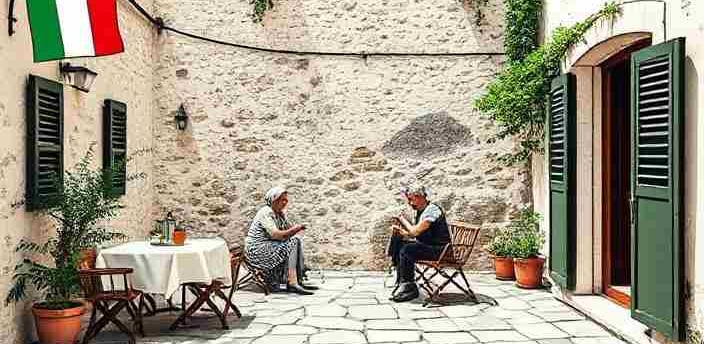

🇮🇹 Italy
Sunday Visits Without Appointment
Casual Consistency Builds Bonds
In many Italian towns, family dropped by unannounced on Sundays—always welcomed with coffee and warmth.
Why It Works:
Routine interactions deepen connection without pressure or planning.
How to Use It:
Keep simple snacks or drinks on hand
Open the door with joy, not judgment
Sit and listen more than you speak
Grandma Tip:
You don’t need to clean—just be kind and present.

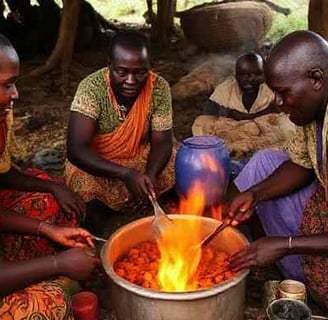
🇰🇪 Kenya
Communal Cooking During Conflict
Let the Fire Mend the Rift
Among the Kikuyu and other groups, feuding relatives would be asked to cook ugali or stew together.
Why It Works:
Shared labor lowers walls and ignites quiet cooperation.
How to Use It:
Invite both sides to prepare one dish together
Avoid deep talk while cooking—let calm build
Eat in silence or with music, not debate
Grandma Tip:
No healing is instant. But food opens the first door.


🇬🇧 United Kingdom
Sharing a Walk to Cool a Dispute
Movement Clears the Mind
In British countryside families, long walks were tradition after family disagreements.
Why It Works:
Movement reduces stress, restores rhythm, and allows thoughts to breathe.
How to Use It:
Suggest a walk instead of a heated talk
Let silence stretch comfortably
Share tea or a meal afterward
Grandma Tip:
You’ll hear more from their footsteps than from their mouth.
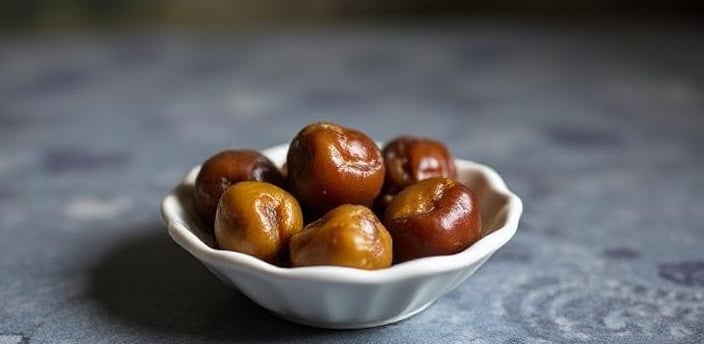

🇪🇬 Egypt
Date Offering for Apology
Sweetness Offered with Silence
In Egyptian tradition, bringing someone a small dish of dates or dried fruit could signal regret and invite peace.
Why It Works:
Nonverbal expression softens pride and maintains dignity.
How to Use It:
Choose soft, sweet fruit
Offer without demands or expectation
Let the recipient take the first bite
Grandma Tip:
If they accept it, the quarrel ends. No more must be said.
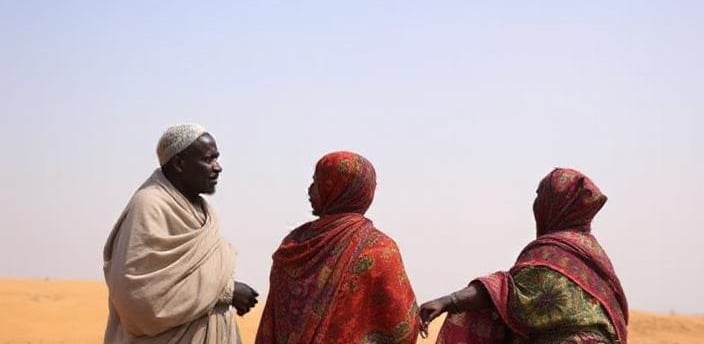

🇸🇳 Senegal (Wolof)
Praising the Other Person in Public
Honor Restores Relationship
Instead of rebuke, elders teach to praise someone’s strengths in front of others—even during strained times.
Why It Works:
Respect invites openness; ego yields when dignity is given.
How to Use It:
Mention a good quality in front of others
Keep it short, sincere, and surprising
Let it land, don’t overexplain
Grandma Tip:
When you say what’s good, what’s bad shrinks back quietly.
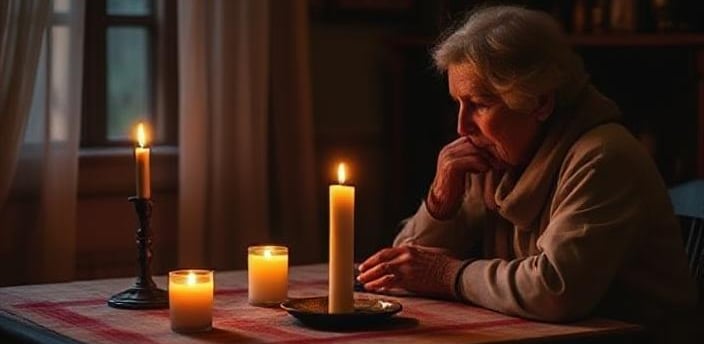

🇵🇱 Poland
Candles for Reconciliation Evenings
Soft Light for Soft Words
In Polish households, conflict resolution was often done around candlelight—inviting stillness and calm.
Why It Works:
Candlelight lowers emotional intensity and opens hearts.
How to Use It:
Light one candle between the two of you
Sit and talk with gentleness
End with silence, not summary
Grandma Tip:
Even the hardest heart melts in warm light.

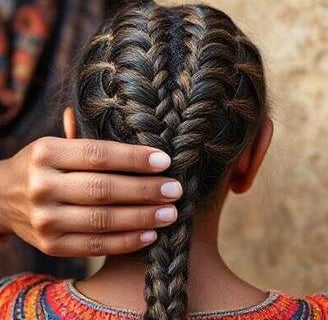
🇧🇴 Bolivia
Braiding Hair as a Sign of Trust
Gesture of Connection and Care
Braiding someone’s hair symbolized care, especially after long silences or broken bonds.
Why It Works:
Touch without words allows healing without pride.
How to Use It:
Offer gently; don’t force
Let it be quiet—feel, don’t speak
Use slow, careful motions
Grandma Tip:
When you can touch their hair again, all is not lost.
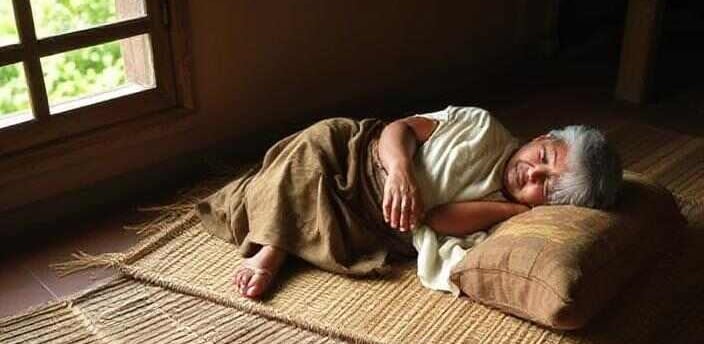

🇮🇩 Indonesia (Java)
Sleeping on a Woven Mat to Settle Anger
Grounding the Spirit
After arguments, Javanese elders would sleep on the floor to humble the ego and cool the body.
Why It Works:
Returning to earth resets the nervous system and quiets the mind.
How to Use It:
Lay a natural mat near a window
Sleep alone, but within earshot of the other person
Rise early and greet gently
Grandma Tip:
The ground humbles fast. And forgiveness rises with the sun.


🇫🇷 France
Letter Left on the Table
Grace in Written Form
In southern France, apologies were sometimes offered by leaving a handwritten note on the breakfast table.
Why It Works:
Gives space, invites reading in private, and shows effort.
How to Use It:
Keep it short, honest, and handwritten
Place it near coffee, bread, or flowers
Don’t expect a reply—just a shift
Grandma Tip:
Ink mends where words once wounded.
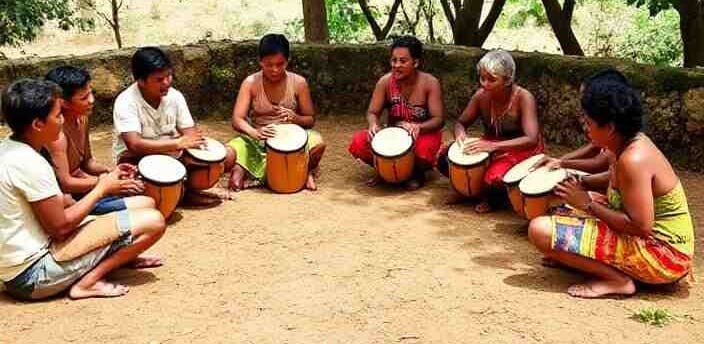

🇨🇴 Colombia
Drumming Together in Circles
Beating Out the Bad Feelings
Communities used drumming circles to let out tension, especially after public disagreements or hard discussions.
Why It Works:
Rhythm calms the nervous system and synchronizes people.
How to Use It:
Use hands, pots, or small drums
Set a slow tempo and build together
End in silence
Grandma Tip:
If you can match the beat, you can match hearts again.


🇹🇭 Thailand
Water Pouring for Reconciliation
Cool Touch to Cool Spirits
Water is poured over someone’s hands as a gesture of asking or granting forgiveness, especially during New Year.
Why It Works:
Water carries symbolism of renewal and release.
How to Use It:
Use fragrant water with flowers or herbs
Pour slowly over both hands
Bow slightly and smile
Grandma Tip:
You can’t carry bitterness with wet hands.
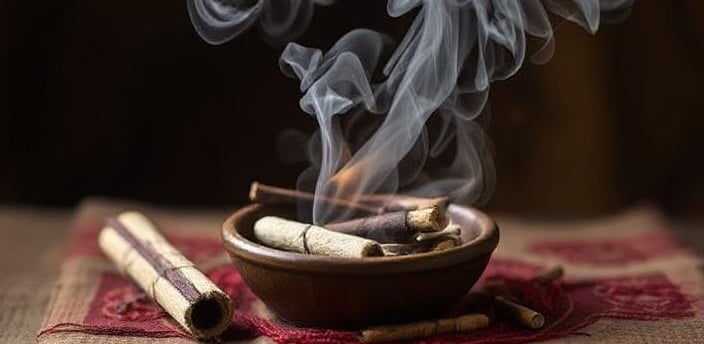

🇺🇸 USA (Native American – Lakota)
Smoke Blessing to End Feuds
Cleanse the Air and Start Over
Feuding relatives may be invited to share a smudging ritual with sage or cedar smoke to clear space and reset intentions.
Why It Works:
Smoke binds spiritual intention to physical action.
How to Use It:
Burn safely in a fireproof bowl
Let each person fan the smoke over their body
Say one word of gratitude and end in silence
Grandma Tip:
Let the smoke speak what you cannot say aloud.


